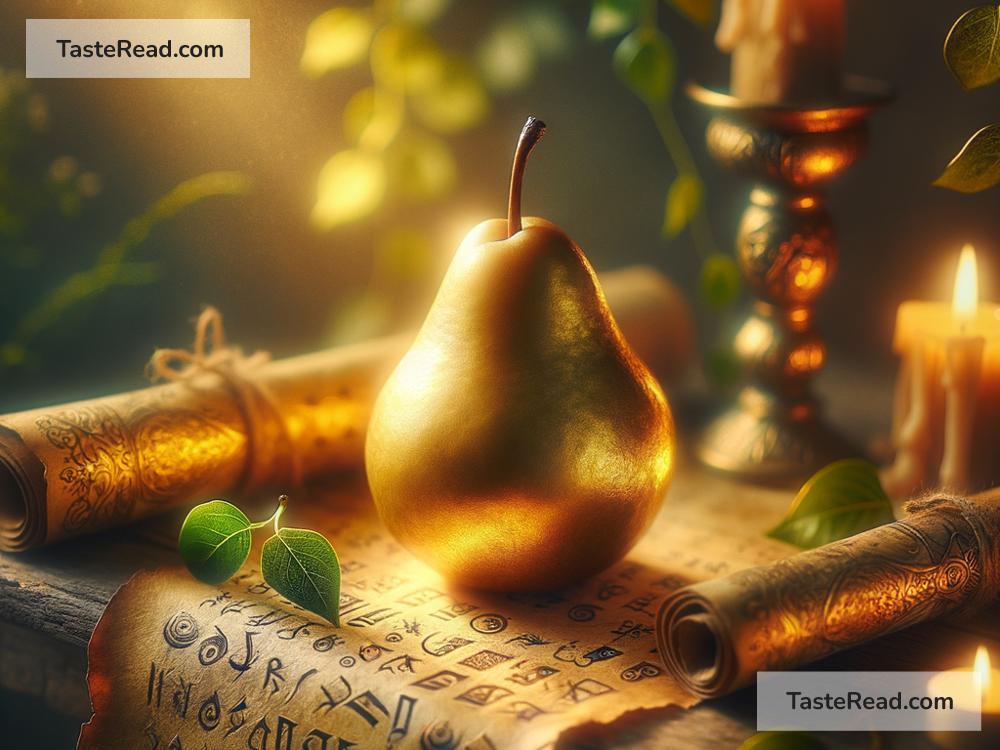How Pears Became Emblems of Eternal Life
When you think of pears, you might imagine their juicy sweetness, their teardrop shape, or their calming green or golden colors. You may also think about how pears make a delicious snack or find their way into desserts and refreshing salads. But did you know that pears have a much deeper meaning in many cultures and histories? Over centuries, pears have been more than just fruit—they have become powerful symbols of eternal life.
In this blog post, we’ll explore the fascinating story of how pears earned their place as emblems of immortality in art, literature, and spiritual traditions. Don’t worry; we’ll keep it simple and easy to understand!
Pears in Ancient Times
The pear is one of the oldest cultivated fruits in human history. Archaeologists have found evidence of pears being grown around 3000 years ago in ancient regions of Europe and Asia. These fruits were not just enjoyed for their taste; they held symbolic meanings in these early societies.
In many cultures, fruit itself represented life, fertility, and abundance. Pear trees, particularly because they bear fruit year after year, were seen as symbols of renewal and the cyclical rhythm of life. While other trees might seem lifeless during the winter, pear trees came back to life each spring, producing blossoms and juicy fruits. This transformation from dormancy to thriving life inspired early civilizations to see pear trees as symbols of something eternal—an ongoing cycle, much like life itself.
Pears and Eternal Life in Art
As civilizations advanced, the symbolic power of pears found its way into art. Pears often appeared in paintings, sculptures, and decorative motifs of religious and spiritual significance.
During the Renaissance period, artists began using pears to represent eternal life and spiritual wisdom. Christianity, which had become widespread by this time, often saw fruit as symbolic of divine gifts, immortality, and paradise. Pears were sometimes depicted as fruits of heaven—perfectly made by God and a sign of eternal reward for the faithful.
For example, pears made appearances in religious paintings, often alongside other fruits. They were seen as reminders of the eternal life promised in Heaven. In some works, pears were depicted being held by angels or offered to saints, further emphasizing their association with the divine.
Pears in Asian Spiritual Traditions
Pears weren’t just symbols in European cultures. In Asia, particularly in Chinese tradition, pears were seen as auspicious fruits symbolizing longevity. Their trees had strong roots, they lived long lives, and their fruits brought nourishment. All of these qualities resonated with the idea of resilience and vitality.
In Chinese culture, pears were often gifted on special occasions like weddings and birthdays. They represented good wishes for a long life and enduring happiness. However, there was also a belief that pears should not be shared among loved ones. To “split a pear” could symbolize breaking a relationship, since the Chinese word for splitting a pear sounds similar to the word for separation.
The connection between pears and long life remained strong in these traditions, blending ideas of eternal life with enduring relationships and prosperity.
Pear Trees and Their Symbolism
The pear tree itself is just as symbolic as the fruit it produces. A pear tree can live for several decades, sometimes over a hundred years, making it a symbol of endurance and longevity. Its ability to flower beautifully in spring and bear fruit in summer and autumn mirrors the cycles of human life: renewal, growth, and abundance.
In folk stories and legends, pear trees often serve as markers of wisdom. They are depicted as trees that have witnessed generations pass by while standing tall and unwavering. In some cultures, planting a pear tree was seen as an act of hope—a way of ensuring life continues into the future, long after the planter is gone.
Why Pears Inspire Eternal Life
So, why have pears earned the special status of being tied to eternal life? Let’s sum it up:
- Timeless Growth: Pear trees grow year after year, offering fruit continuously, which mirrors the idea of life’s perpetual cycle.
- Nourishment: Pears don’t just nurture the body; they symbolize nurturing the soul, representing the gift of a life well-lived.
- Art and Belief: Through art and beliefs across cultures, pears became more than food. They became messengers of greater meanings like salvation, wisdom, and immortality.
- Generational Legacy: The act of growing pear trees for future generations ties them to the idea of life enduring beyond the present moment.
Pears and You
Next time you bite into a juicy pear, think about its rich history and the powerful ideas it represents. Beyond being a sweet treat, pears connect us to the past—the stories, traditions, and art that have carried their symbolism through centuries. They remind us of life’s beauty and resilience, and ultimately, they invite us to consider what we want to pass along as a legacy.
Pears may seem simple, but their story is anything but. They’ve journeyed through time to stand as emblems of eternal life, carrying wisdom and meaning in their humble shape.
So, let the pear inspire you—not just to live well, but to live meaningfully, embracing renewal and sharing your blessings with the world. Even something as simple as a pear allows us to connect to the timeless human desire for life everlasting.


